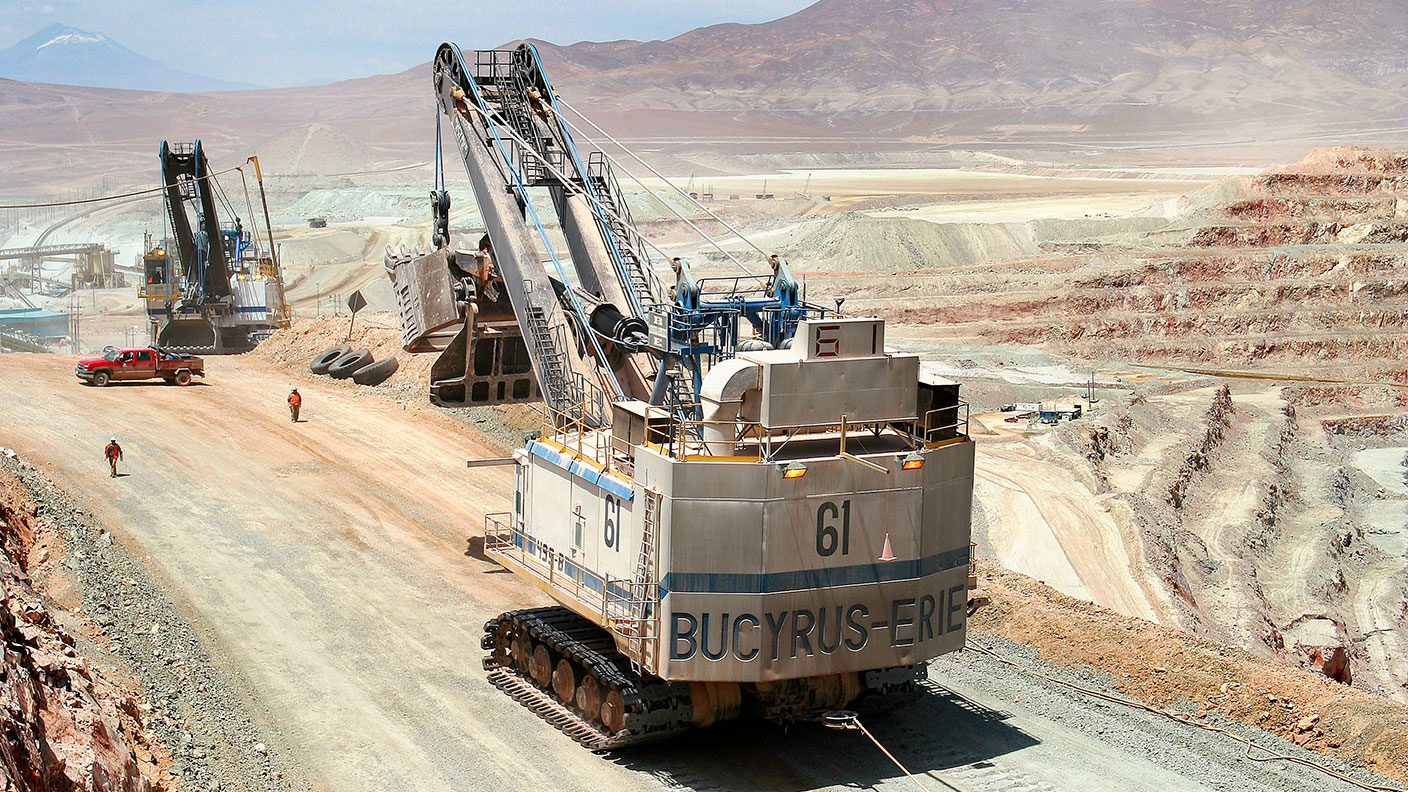Glencore’s stupidly high debt may have sealed its fate
Glencore's Ivan Glasenberg says balance sheet is "pitched for Armageddon". Given the stupidly high debt, that could be sooner than he thinks, says Merryn Somerset Webb.

Get the latest financial news, insights and expert analysis from our award-winning MoneyWeek team, to help you understand what really matters when it comes to your finances.
You are now subscribed
Your newsletter sign-up was successful
Want to add more newsletters?

Twice daily
MoneyWeek
Get the latest financial news, insights and expert analysis from our award-winning MoneyWeek team, to help you understand what really matters when it comes to your finances.

Four times a week
Look After My Bills
Sign up to our free money-saving newsletter, filled with the latest news and expert advice to help you find the best tips and deals for managing your bills. Start saving today!

I met with demographics and commodity expert Paul Hodges this week (see my last interview with him here).
We talked about how the fall in Chinese growth has given us the collapse of the third great bubble in recent financial history the commodity bubble (the first two were the dot com and the subprime bubbles). And we wondered when the stock market carnage of the last few months would start to translate into corporate carnage.
The answer, as it turns out, is about now. Commodity trading giant Glencore, the worst performer in the FTSE 100 so far this year (off around 50%) has announced that it has recognised that its debt burden is far too high for comfort and that it has to do something about it. That something is to cancel the dividend payout, to sell some assets and to ask investors to give it a new pile of cash to play with (there is to be a $2.5bn equity raising).
MoneyWeek
Subscribe to MoneyWeek today and get your first six magazine issues absolutely FREE

Sign up to Money Morning
Don't miss the latest investment and personal finances news, market analysis, plus money-saving tips with our free twice-daily newsletter
Don't miss the latest investment and personal finances news, market analysis, plus money-saving tips with our free twice-daily newsletter
The chief executive, Ivan Gasenberg, reckons this will make the balance sheet so resilient that it will be "pitched... for Armageddon". If only that were so (given that there is every possibility that in the context of commodity prices Armageddon may well be what Chinese slowdown gives him). It isn't.
Right now, Glencore's net debt (before interest, tax, depreciation and amortisation) is a whopping three times its earnings. That's way too high. Stupidly high. The kind of high that could only ever have made sense if the management team had visited the future and confirmed that commodity prices would rise in a straight line for ever.
And even after depriving investors of their dividends and diluting their shares with a fund raising round, the firms net debt will, says James MacKintosh in the FT, be twice its earnings. That's still way too high. Glencore will be on the danger list for some time to come.
Perhaps, rather than getting ready for Armageddon now, Gasenberg might have been better remembering that bad times always follow good, and that highly indebted companies always weather the bad times worse that those with more sensibly structured balance sheets. It is also worth pointing out that they have a high propensity to suffer in the good times too.
Even if commodity prices recover from here, Glencore will still have too much debt and still be known to have too much debt, something that will make it hard for it to improve and/or restructure its business in future.
For a depressing case study on this, Glencore's management need look no further than Thomas Cook. A recent Bloomberg story noted that the travel firm is finding it almost impossible to compete with its "less cash constrained rival TUI AG". With its interest costs alone running at £130m year the 175 year-old firm just can't "generate the cash needed to fulfil its modernising ambitions."
The result is that, in the face of intense competition from no-frills airlines and online booking sites, and with TUI adding 60 exclusively owned hotels and resorts to its offering over the next five years, Thomas Cook can't keep up. It is, Andrew McNally, author of Debtonator, tells me "a great example of how excessive debt kills a corporation long before the administrators are called in" and a reminder to investors to steer clear of heavily indebted firms at all times, regardless of how clever their borrowing looks in the good times.
Get the latest financial news, insights and expert analysis from our award-winning MoneyWeek team, to help you understand what really matters when it comes to your finances.

-
 Early signs of the AI apocalypse?
Early signs of the AI apocalypse?Uncertainty is rife as investors question what the impact of AI will be.
-
 Reach for the stars to boost Britain's space industry
Reach for the stars to boost Britain's space industryopinion We can’t afford to neglect Britain's space industry. Unfortunately, the government is taking completely the wrong approach, says Matthew Lynn
-
 These 2 stocks are set to soar
These 2 stocks are set to soarTips The returns from these two aluminium and tin stocks could be spectacular when the commodity cycle turns says David J Stevenson.
-
 The best ways to buy strategic metals
The best ways to buy strategic metalsTips Weaker prices for strategic metals in the alternative-energy sector are an investment opportunity, says David Stevenson. Here, he picks some of the best ways to buy in.
-
 House prices to crash? Your house may still be making you money, but not for much longer
House prices to crash? Your house may still be making you money, but not for much longerOpinion If you’re relying on your property to fund your pension, you may have to think again. But, says Merryn Somerset Webb, if house prices start to fall there may be a silver lining.
-
 A lesson for investors from a ill-fated silver mine
A lesson for investors from a ill-fated silver mineAnalysis Mining methods may have changed since the industry’s early days, but the business hasn’t – digging ore from the ground and selling it at a profit. The trouble is, says Dominic Frisby, the scams haven't changed either.
-
 Prepare your portfolio for recession
Prepare your portfolio for recessionOpinion A recession is looking increasingly likely. Add in a bear market and soaring inflation, and things are going to get very complicated for investors, says Merryn Somerset Webb.
-
 The natural resources industry is in a tight spot – which is bad news for the rest of us
The natural resources industry is in a tight spot – which is bad news for the rest of usOpinion The natural resources industry is in a bind. We need it to produce more energy and metals, but it has been starved of investment, plagued by supply chain issues, and hobbled by red tape. That’s bad news for everyone, says Dominic Frisby.
-
 Investing for income? Here are six investment trusts to buy now
Investing for income? Here are six investment trusts to buy nowOpinion For many savers and investors, income is getting hard to find. But it's not impossible to find, says Merryn Somerset Webb. Here, she picks six investment trusts that are currently yielding more than 4%.
-
 How to invest in the copper boom
How to invest in the copper boomTips The price of copper has slipped recently. But that’s temporary – the long-term outlook is very bullish, says Dominic Frisby. Here, he explains the best ways to invest in copper.